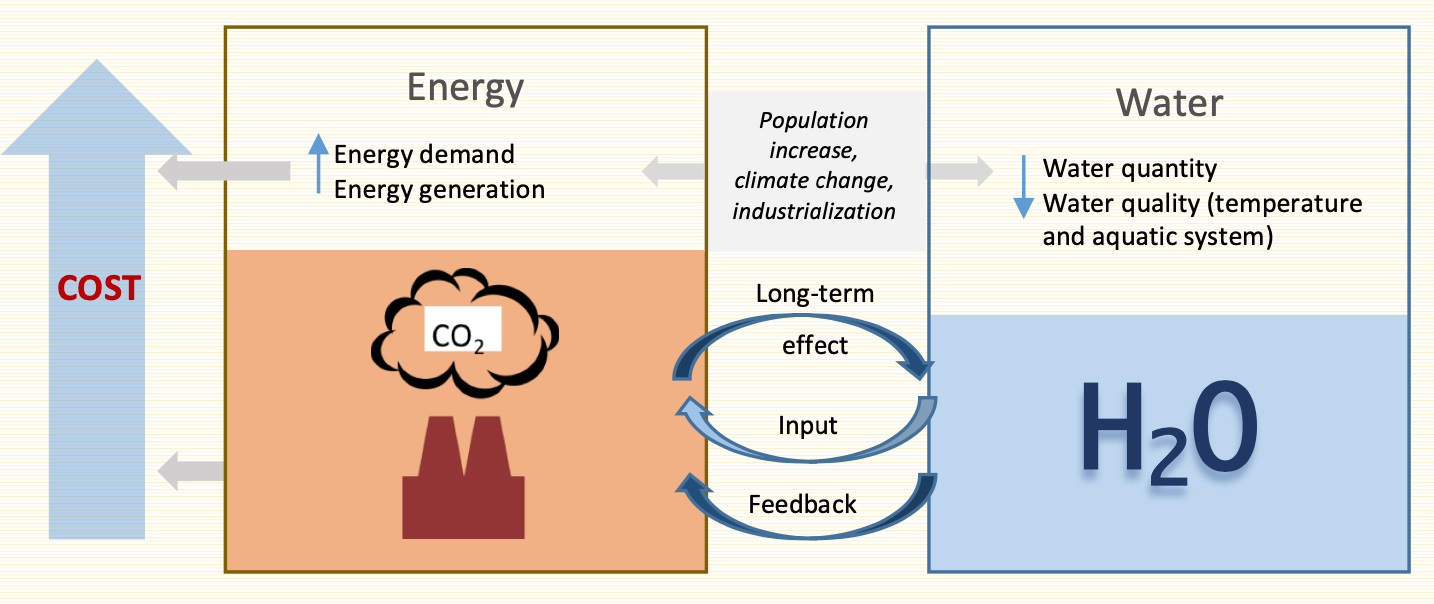The water-energy-climate nexus
With increasing populations, land use and deforestation expand. This, in combination with the increase of extreme weather events due to climate change, leads to a decline in global freshwater resources, converting water into a contested resource. Insufficient water reserves lead to competition among different water users for scarce water resources. Limited availability of water can cause significant and interrelated destabilization impacts on basic societal issues, as well as on energy security.

Wise water-energy choices require good information about the problem and robust methodologies and tools. The interdependent combination of water, energy, and climatic processes, as well as apparent discrepancies in water-use data (water source, water quantity and water effects) for power plants make the realization of energy-water-climate nexus projects extremely challenging. In addition, the lack of potent models and tools treating water as a commodity of limited capacity, rather than a renewable resource keep urgently needed sustainability measures in the energy sector on hold.
To study the impact of limited water resources on the energy sector, energy, water, and climate need to be treated together. The increasing value of water can create new opportunities for novel sustainability measures, including coupled energy/water applications and advanced processes for wastewater treatment and reuse.
This work involves research on the elimination of water use in power plants by replacing conventional water-based cooling systems with alternative technologies and novel air-cooled technologies. A proposed technology involving underground tunnels for solar power plants was also reported by SolarPACES.

In this research line the impact of water availability and quality on power plant operation, as well as the impact of power plant operation on the local climate (air and water sources) are also studied. Within this scope, I have been leading the development of a new model to more accurately estimate the real cost of water use in power plants, accounting for environmental and economic criteria.